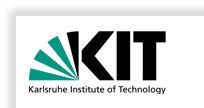| Description | During the last decades we witnessed a growing importance of Information Technology (IT) in the business world along with faster and faster innovation cycles. IT has become core for businesses from an operational company-internal and external customer perspective. Today, IT is considered as key enabler of operational excellence ranging from the enrichment of routine working tasks (e.g., enterprise resource planning systems) to e-enabled integration of entire business eco-systems (e.g., e-supply chains). Complementing this primarily company-internal perspective on IT, we have recently have seen a massive growth of digital extensions of existing products and services across all industries. The disruptive potential of IT has already transformed selected key industries, e.g. media or retail, and its impact is continuously growing in all areas of business and society. |
| Content of teaching | Definition and key concepts of Information Systems |
| Aim | The students will: Get an overview on basic concepts and definitions of information systems and understand key characteristics of IS as a foundation for digitization of business processes, products and services |
Digital Transformation of Organizations
| type: | Vorlesung (V) | ||
|---|---|---|---|
| semester: | SS 2017 | ||
| time: | 2017-04-24 11:30 - 13:00 wöchentlich 05.20 1C-04 05.20 Kaiserstraße 89-93 (Allianz-Gebäude) 2017-05-08 11:30 - 13:00 wöchentlich 05.20 1C-04 05.20 Kaiserstraße 89-93 (Allianz-Gebäude) 2017-05-15 11:30 - 13:00 wöchentlich 05.20 1C-04 05.20 Kaiserstraße 89-93 (Allianz-Gebäude) 2017-05-22 11:30 - 13:00 wöchentlich 05.20 1C-04 05.20 Kaiserstraße 89-93 (Allianz-Gebäude) 2017-05-29 11:30 - 13:00 wöchentlich 05.20 1C-04 05.20 Kaiserstraße 89-93 (Allianz-Gebäude) 2017-06-12 11:30 - 13:00 wöchentlich 05.20 1C-04 05.20 Kaiserstraße 89-93 (Allianz-Gebäude) 2017-06-19 11:30 - 13:00 wöchentlich 05.20 1C-04 05.20 Kaiserstraße 89-93 (Allianz-Gebäude) 2017-06-26 11:30 - 13:00 wöchentlich 05.20 1C-04 05.20 Kaiserstraße 89-93 (Allianz-Gebäude) 2017-07-03 11:30 - 13:00 wöchentlich 05.20 1C-04 05.20 Kaiserstraße 89-93 (Allianz-Gebäude) 2017-07-10 11:30 - 13:00 wöchentlich 05.20 1C-04 05.20 Kaiserstraße 89-93 (Allianz-Gebäude) 2017-07-17 11:30 - 13:00 wöchentlich 05.20 1C-04 05.20 Kaiserstraße 89-93 (Allianz-Gebäude) 2017-07-24 11:30 - 13:00 wöchentlich 05.20 1C-04 05.20 Kaiserstraße 89-93 (Allianz-Gebäude) |
||
| lecturer: | Prof. Dr. Alexander Mädche | ||
| sws: | 2 | ||
| lv-no.: | <a target="lvn" href="https://campus.studium.kit.edu/events/GOorTmvcQM-cRGId-u2qOA">2540556</a> | ||


